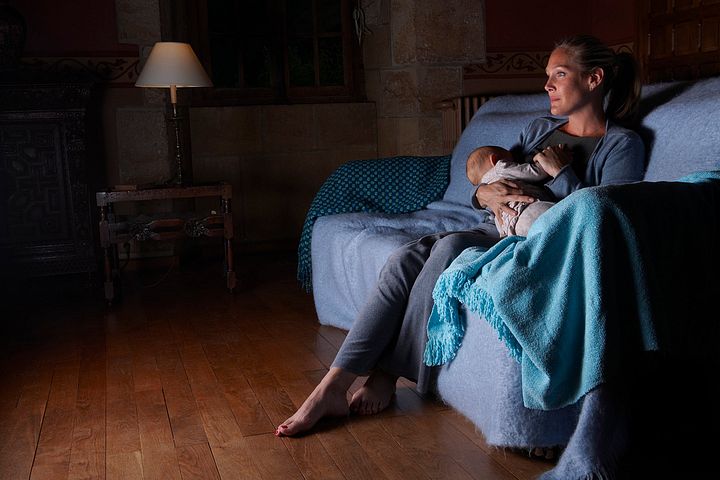The mode of breastfeeding of a baby infant several decades ago was as follows:
- 0-2 months - from 6 to 17 feedings per day;
- 3-4 months - 5 day and 1 night feeding;
- 5-6 months - 4 - 5 daily feedings (do not feed the baby at night) and a little feeding;
- 7-8 months - 3 day feedings and complementary foods;
- 9-10 months - 2 daily feedings (morning and evening) and complementary foods;
- 11-12 months - 1 breastfeeding (at bedtime) and “adult” food.
Modern pediatricians and breastfeeding counselors today have a completely different view on both breastfeeding in general and nightly breastfeeding in particular.

Nursing Lactation
According to recent scientific studies, the most comfortable and physiologically natural is free feeding (or feeding on demand), and not strict adherence to the regime. In addition to the natural need to be satisfied, a small child needs frequent contact with the chest because for the child this is the only way he can calm down. Feeling uncomfortable sensations for any reason, the baby begins to squeak and look for an object with his lips that can be sucked. Ideally, he is immediately given a breast. The baby becomes comfortable and warm, he drinks milk, hears the sound of his mother’s heart, he smells familiar smells, and he calms down. (See article what feeding method to choose?)
As for night feedings, for the most part in the very first months of life (up to about six months), with a free feeding schedule, they will be as frequent as daytime ones (the child will ask for breasts every one and a half to two hours). This happens for two reasons:
- Firstly, unlike adults, in newborns most of the sleep is dominated by the active phase (in adults - passive). Toddlers sleep restlessly and often wake up. After 6 months, the percentage of phases of sleep will begin to increase in the direction of passive, and the child will be less likely to wake up at night.
- Secondly, breast milk, unlike ready-made milk mixtures, is absorbed much faster, and the crumbs simply need to be a little nourished even at night.
[sc: rsa]
In rare cases, mothers are lucky, their babies can withstand a five - six hour break at night. But do not hope that this will be the story of your little one. Many babies after 6-7 months during teething experience severe discomfort, and at this time "hang" on the chest all night.
Do not treat breastfeeding at night as a heavy and tiring duty. Change your view of this process:
- Think that you are not with a baby, but a baby with your chest;
- Organize a joint sleep (or move the crib as close to the parent's bed as possible);
- Feed your baby well before bedtime;
- Keep wet wipes and a clean diaper on hand to change if necessary;
- Get a bedside nightlight so as not to knock the baby's physiological clock with bright light.
When to stop night feeding?

According to experts and the experience of many mothers, the least painful process, both for a nursing mother and a baby, will be a gradual weaning. A child with this approach will not experience stress. In a nursing woman, milk production will gradually decrease, and then milk production will stop without the need to dress the breast or take a shock dose of hormones to stop lactation.
It is good to finish breastfeeding in the warm season: the kids walk a lot in the fresh air, get tired physically and simply forget about sucking.
According to the rules of free breastfeeding, night-time feeding is stopped last of all, immediately after the baby begins to fall asleep calmly without evening sissy. Perhaps weaning for several nights in a row will have to wear or rock a baby. Show love and patience at this difficult moment. Together you can do it!
A detailed article on how to completely wean a baby from breastfeeding
Weaning a baby: how not to do it (bad advice)
And an article on how to stop milk lactation -https://kid.htgetrid.com/en/kormlenie-grudyu/kak-prekratit-laktatsiyu.html









Night feeding was not a difficult test for me, since from the first days of my children’s life we tried to be as close as possible to the baby as often as possible, and therefore the children slept with me. .
Read Gary Ezzo's book, How to Teach a Baby to Sleep All Night. I myself just recently found her. And before that I read articles from sites like this and suffered for a long time to wean a baby from the chest. On-demand feeding tips and sleeping together is the most short-sighted plan, then you are tormented by weaning.